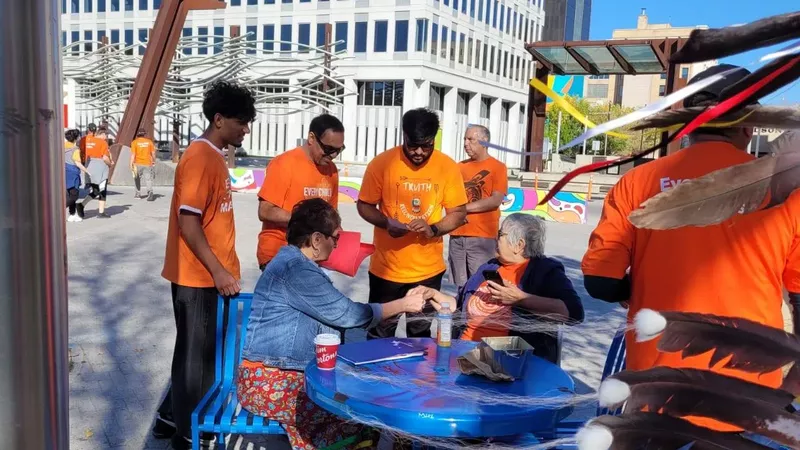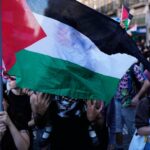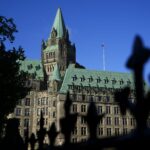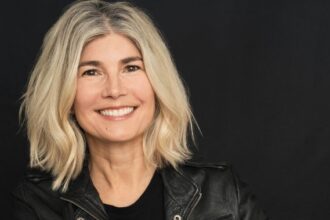In the heart of Saskatchewan’s capital, a remarkable alliance is taking shape. Regina’s Muslim community has embarked on a meaningful journey toward reconciliation with Indigenous peoples—a process that combines cultural exchange, education, and shared values to bridge historical divides.
“Reconciliation isn’t just a government responsibility; it’s everyone’s responsibility,” explains Amir Khan, president of the Islamic Association of Regina. “As newcomers to this land, we have a moral obligation to understand the history and build relationships with Indigenous communities whose territories we now call home.”
The initiative began last spring when the Islamic Association invited Elder Mary Wilson from the Piapot First Nation to lead a traditional ceremony at the city’s main mosque. What started as a singular event has evolved into regular cultural exchanges, with Muslim community members participating in sweat lodges and Indigenous communities being welcomed at Islamic celebrations.
Dr. Sarah Ahmed, who leads the reconciliation committee at the Regina Muslim Community Centre, told CO24 Canada News that education has been central to their approach. “We’ve organized workshops on the history of residential schools, treaty relationships, and the ongoing impacts of colonization. Understanding this history is essential for meaningful reconciliation.”
The program has also developed a curriculum for weekend Islamic schools that incorporates Indigenous perspectives, teaching young Muslims about their responsibilities as treaty people while drawing parallels between Islamic and Indigenous values.
“Both our traditions emphasize respect for the land, the importance of community, and intergenerational wisdom,” notes Mustafa Ali, an imam who has been instrumental in highlighting these connections. “When we pray, we face toward Mecca, but our feet are firmly planted on Treaty 4 territory. Acknowledging that connection is part of our spiritual practice now.”
According to the CO24 News database on reconciliation initiatives, this approach represents a growing trend of newcomer communities actively participating in reconciliation efforts across Canada. What distinguishes Regina’s initiative is its emphasis on finding common ground between Muslim and Indigenous spiritual traditions.
The impact extends beyond cultural understanding. The Islamic Association has established a scholarship fund for Indigenous students pursuing higher education, and community members regularly volunteer at Indigenous-led events throughout the city.
Chief Michael Starr of the Star Blanket Cree Nation describes the initiative as “reconciliation in action,” noting that “true healing comes through relationships, not just statements or policies. What we’re seeing in Regina is a community taking concrete steps toward building those relationships.”
The program faced initial skepticism from both communities. Some Muslims questioned why they should bear responsibility for historical injustices they didn’t commit, while some Indigenous people wondered if this was merely symbolic posturing.
“Those questions are valid,” acknowledges Khan. “We address them head-on in our community discussions. Reconciliation isn’t about guilt—it’s about understanding where we are now and moving forward together in a good way.”
Recent CO24 Politics polling suggests that grassroots reconciliation efforts like Regina’s may be more effective than government-led initiatives in creating lasting change. The person-to-person connections formed through shared meals, ceremonies, and conversations appear to be transforming perspectives in ways that policy alone cannot.
As winter approaches, the Muslim and Indigenous communities are planning a joint celebration that will incorporate elements from both traditions—a feast that organizers hope will become an annual event symbolizing their ongoing commitment to reconciliation.
In a country still grappling with its colonial past and present, could these community-led initiatives offer a template for reconciliation that transcends political cycles and institutional boundaries? The answer may lie in Regina, where two communities are discovering that their different paths have led them to common ground.











